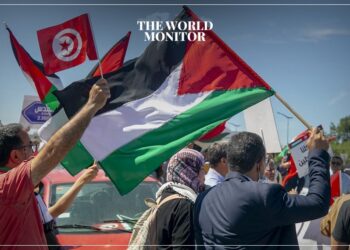In response to France’s support for Morocco’s autonomy plan in Western Sahara, Algeria has warned of additional measures against France.
Algerian Foreign Minister Ahmed Attaf indicated on Wednesday that this move could perpetuate the political deadlock that has plagued the region for nearly two decades.
This comes after French President Emmanuel Macron declared the Moroccan proposal as the sole basis for a fair, lasting, and negotiated political solution, in line with UN Security Council resolutions.
Attaf announced that Algeria would take necessary steps to express its disapproval of France’s endorsement of Morocco’s plan for Western Sahara.
This decision, deemed “dangerous” by Attaf, was followed by the recall of Algeria’s ambassador to Paris for consultations—a preliminary step that will be followed by other protest actions.
Attaf stated during a press conference that recalling the ambassador signifies a reduction in diplomatic representation, highlighting Algeria’s condemnation of France’s position.
He emphasized that the ambassador’s recall is only the first step, with more measures to come.
According to Attaf, President Macron had informed Algerian President Abdelmadjid Tebboune of France’s decision on the sidelines of the G7 summit in Italy in June.
Tebboune’s response was firm, warning that such a move would not revive the political process but would further entrench the stalemate caused by the autonomy plan over the past 17 years.
Attaf argued that France’s move, which purports to revive the political process, actually contributes to the ongoing stagnation of the political situation in Western Sahara.
He dismissed the French recognition of Morocco’s plan as legally meaningless.
This stance comes after Macron stated that the Moroccan proposal now constitutes the only basis for a political solution that is fair, lasting, and negotiated, in accordance with UN Security Council decisions.
Tebboune was scheduled to visit France in September, but Attaf hinted that this visit might be reconsidered due to Macron’s position.
Attaf suggested that the planned state visit might be affected by France’s stance, indicating that it has not positively contributed to the visit’s realization.
Western Sahara, a former Spanish colony, is 80% controlled by Morocco, which proposes autonomy under its sovereignty.
However, the Algeria-backed Polisario Front has demanded sovereignty and a UN-supervised self-determination referendum since Spain’s withdrawal in 1975, as stipulated in the 1991 ceasefire agreement.
The UN classifies Western Sahara, rich in fisheries and phosphate reserves, as a non-self-governing territory.






